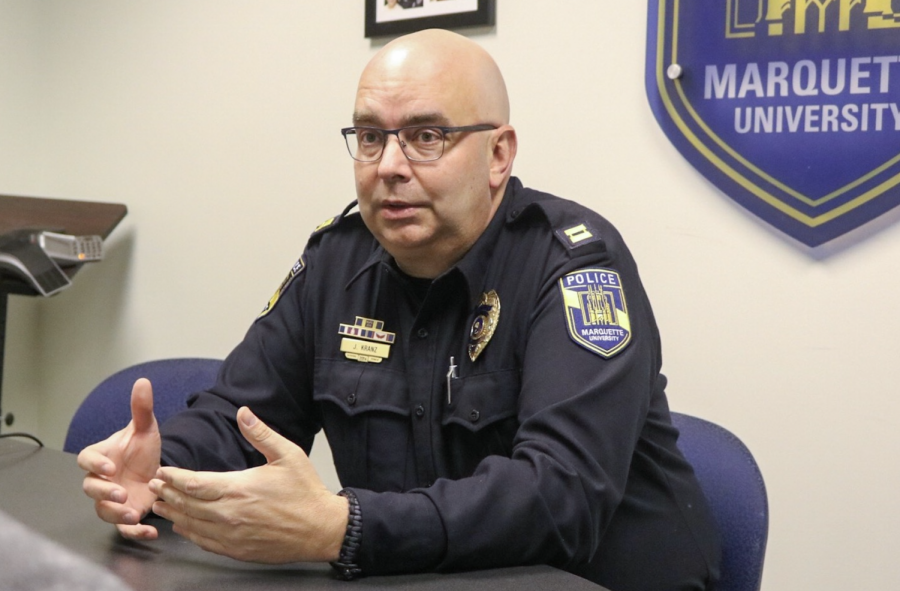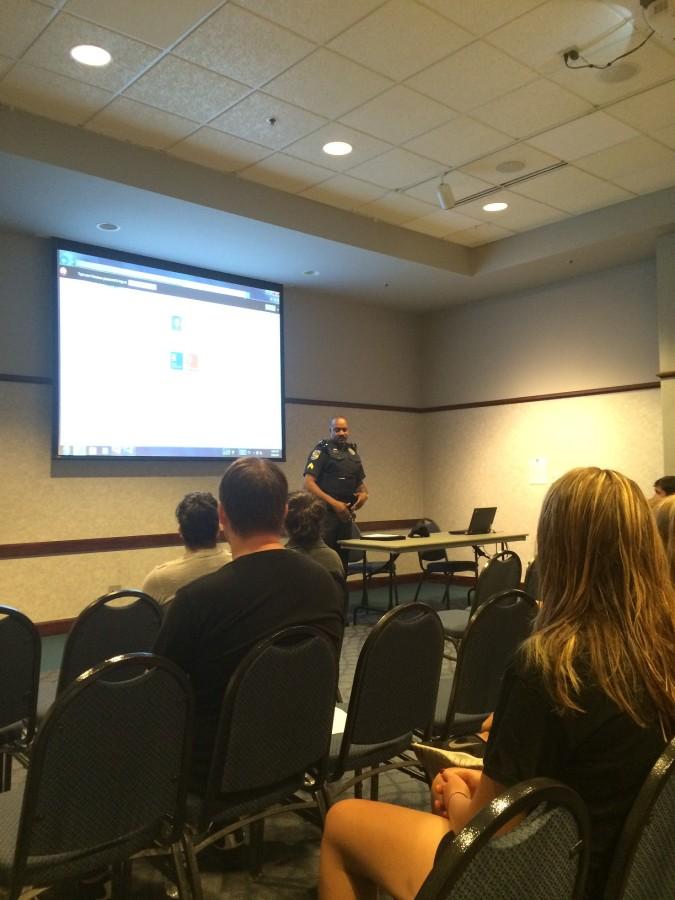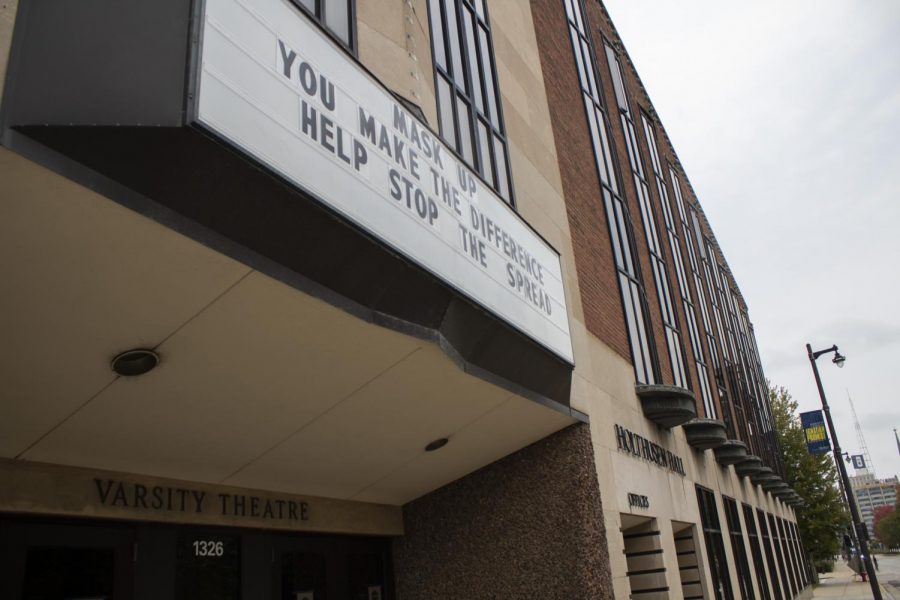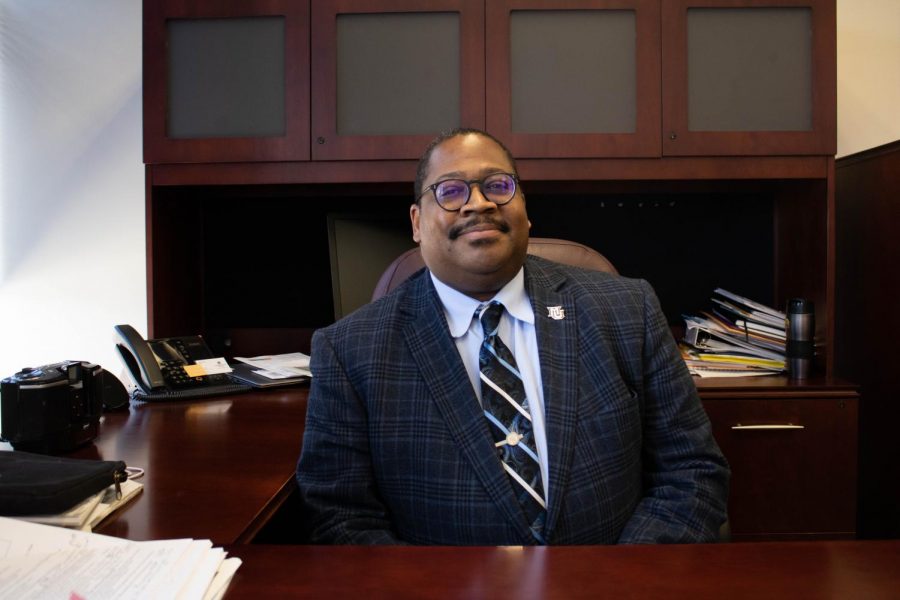The Marquette University Police Department is in the process of training diversity liaison officers who will talk with community members who feel they have been racially profiled by MUPD.
The diversity officer liaison program has yet to officially launch, but MUPD Sgt. Glenn Berrios-Schroeder said he hopes to have the program ready to launch within the next two months.
The department’s goal is to help facilitate dialogue between MUPD and the community it serves, Interim Chief Jeff Kranz said.
When hiring new officers, Kranz said he looks for younger, more open-minded officers who come from urban backgrounds.
“I can train you not to racial profile. I can train you not to do this and that, and we have policies that govern all of this, but if you in your heart of hearts truly do not believe in that philosophy, it’s going to come out,” Kranz said.
Berrios-Schroeder said in summer 2017, a student came to MUPD and said they felt they were racially profiled by one of the department’s officers. After an investigation was conducted, it was determined that the officer had not done anything wrong, but the student said they would like to have an officer they can talk to about feeling discriminated against.
From there, the diversity officer liaison program was formed.
“The purpose is to bridge the gap between students and faculty and staff,” Berrios-Schroeder said. “If they feel that they are being discriminated against racially, or they feel they haven’t been treated fairly, they’ll know of certain officers within this department they can come and talk to.”
Jacki Black, the associate director of Hispanic initiatives in the Office of Diversity and Inclusion, said she and her office worked with the student and MUPD to help form the diversity liaison officer program.
“While ALL (sic) MUPD officers are responsible for, trained in and dedicated to maintaining a safe environment for all students, staff and community members, this program will place a strategic focus on forging connections with diverse members of our campus community, including people of color, LGBTQ+ individuals, women and those from other diverse backgrounds,” Black said in an email.
When the program is officially launched, there will be several ways for students to get in touch with MUPD diversity liaison officers, but until then, Berrios-Schroeder said students can always call MUPD and ask to be in touch with a diversity liaison officer.
Currently, when they ask for an officer, students will be in touch with an officer who has yet to be trained as a diversity liaison.
So far, five officers in addition to Berrios-Schroeder have joined the program. Berrios said he is currently working with Joya Crear in the Office of Student Affairs to develop training for the officers, which he hopes will be completed at least once a year.




